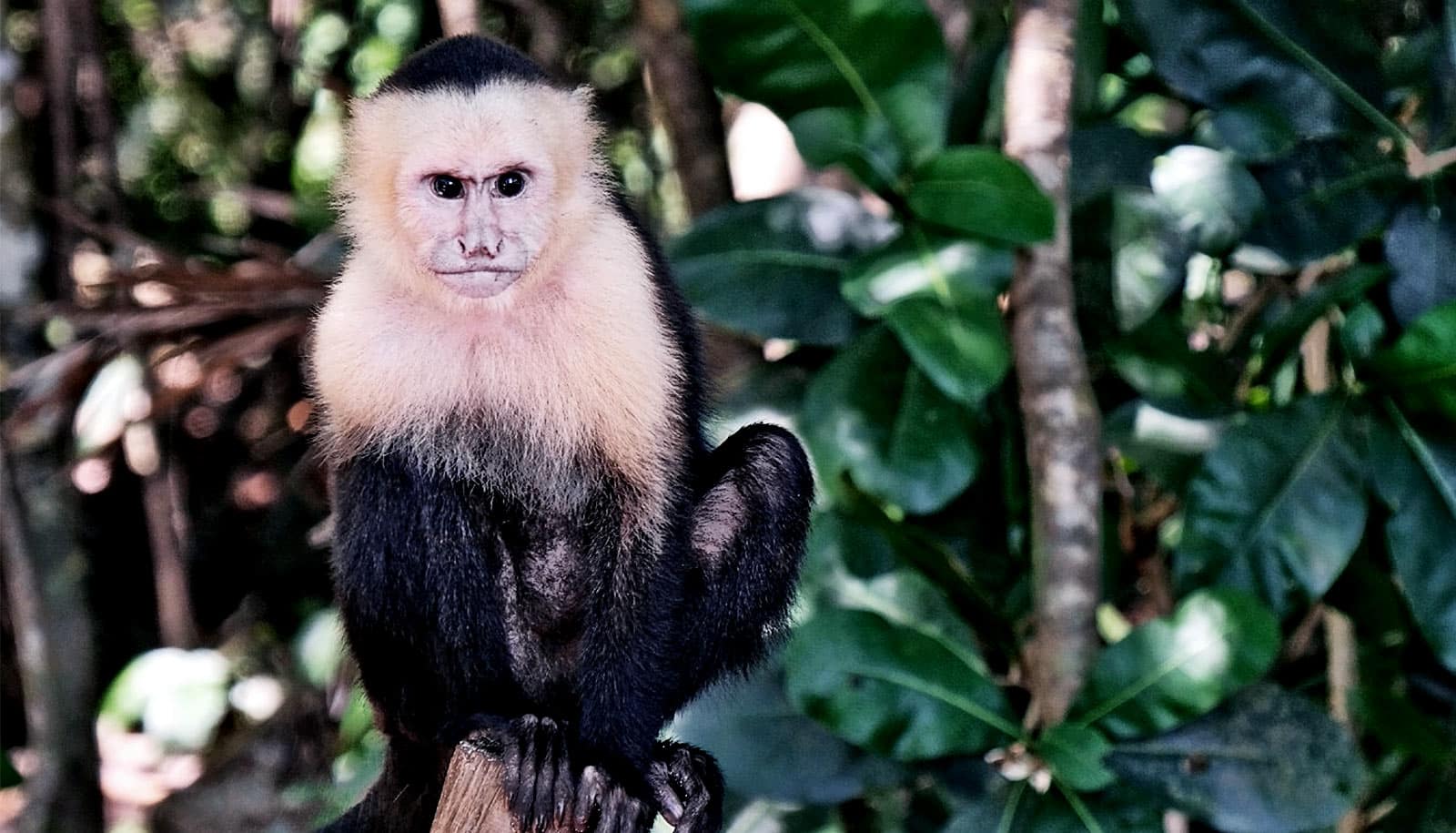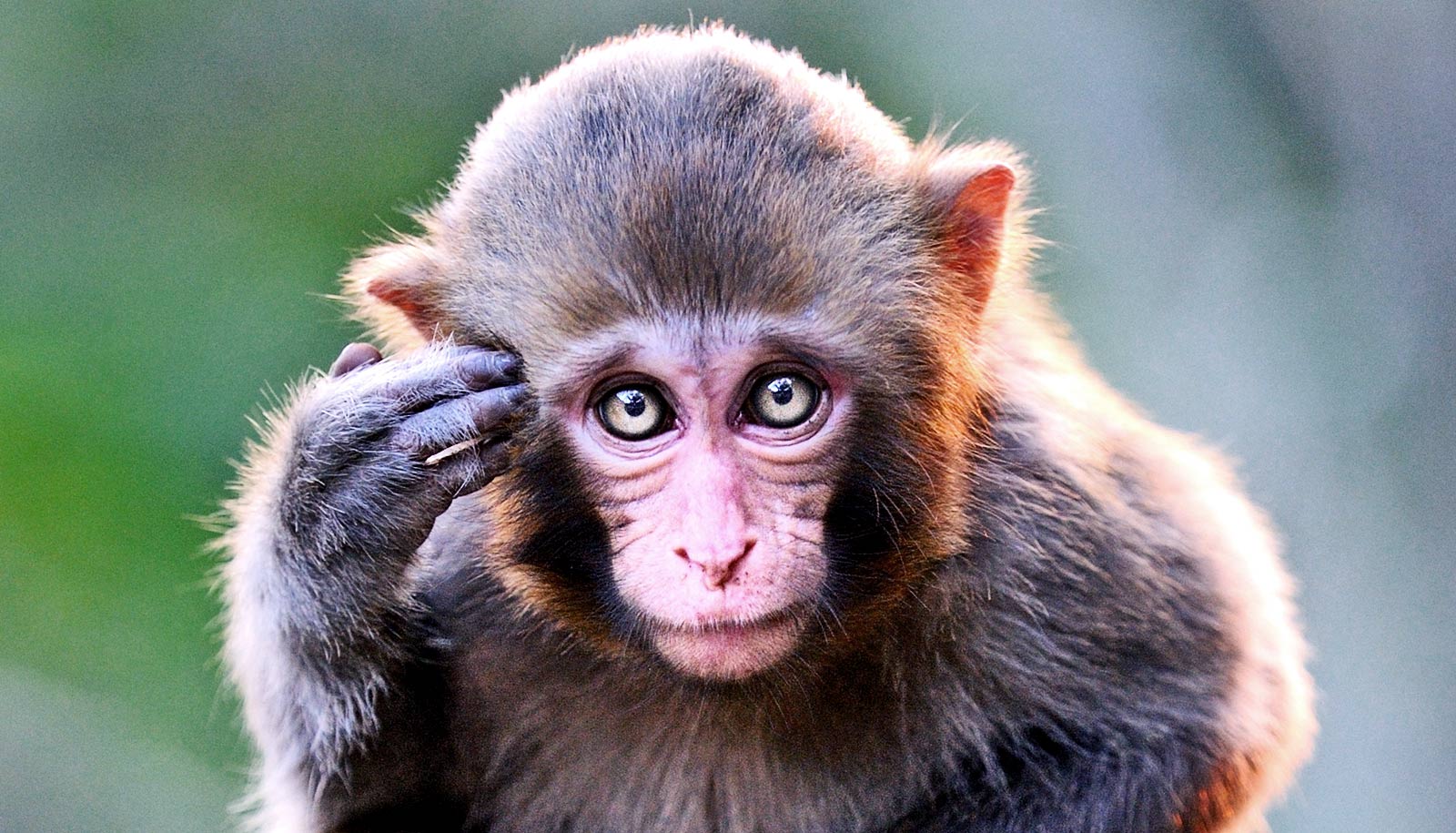When it comes to exploring more efficient options to solve a problem, monkeys exhibit more cognitive flexibility than humans, a new study shows.
“We are a unique species and have various ways in which we are exceptionally different from every other creature on the planet,” says Julia Watzek, a psychology graduate student at Georgia State University and lead author of the paper published in Nature Scientific Reports. “But we’re also sometimes really dumb.”
The study illustrates how capuchin and rhesus macaque monkeys are significantly less susceptible than humans to “cognitive set” bias when presented with a chance to switch to a more efficient option.
“I think we’re less and less surprised when primates outsmart humans sometimes.”
The findings support earlier studies with fellow primates, baboons, and chimpanzees, who also showed a greater willingness to use optional shortcuts to earn a treat compared to humans who persisted in using a familiar learned strategy despite its relative inefficiency.
“I think we’re less and less surprised when primates outsmart humans sometimes,” Watzek says.
Cognitive flexibility in finding solutions
The test involved establishing a specific strategy to lead to a solution. Through trial and error using a computer, monkeys and humans had to follow a pattern and push a striped square, then a dotted square, and then, when it appeared, a triangle to achieve the goal and receive a reward.
For the humans, the reward was either a jingle or points to let them know they got it right. For the monkeys, it was a banana pellet. Wrong results got a brief timeout and no reward.
After participants learned the strategy, subsequent trials presented the triangle option immediately without having to push the patterned squares in sequence. All of the monkeys quickly used the shortcut, while 61% of the humans did not. In fact, 70% of all the monkeys used the shortcut the very first time it was available compared to only one human. (The study involved 56 humans, 22 capuchin, and 7 rhesus monkeys.)
“There’s a heavy reliance on rote learning and doing it the way you were taught and to specifically not take the shortcut,” Watzek says of the human subjects.
“More of the humans do take the shortcut after seeing a video of somebody taking the shortcut, but about 30% still don’t,” Watzek says.” In another version we told them they shouldn’t be afraid to try something new. More of them did use the shortcut then, but many of them still didn’t.”
Consider the options
The study illustrates how humans can suffer from learned biases that can lead us to make inefficient decisions and miss opportunities. Often, sticking with what’s familiar and proven—like taking the same commute route to work—isn’t a big deal with a low cost over an alternative.
But, other times, using inefficient, biased, or outdated practices can have far-reaching consequences. The most recent global financial crisis when many experts ignored instability warnings and continued practicing risky trading and lending habits that led to a housing market crash, is an example of this.
“To set ourselves up for good decision-making, sometimes that means changing available options,” Watzek says. “I’m not proposing to topple the entire Western education system, but it is interesting to think through ways in which we train our children to think a specific way and stay in the box and not outside of it. Just be mindful of it. There are good reasons for why we do what we do, but I think sometimes it can get us into a lot of trouble.”
Coauthor Sarah Pope, a former graduate student in the Neuroscience Institute at Georgia State, took the experiment to Namibia and tested it on members of the semi-nomadic Himba tribe, who live in a less predictable environment and have no exposure to Western education. While more of these participants acted quickly to use the shortcut immediately, more than half still used the three-step approach as well.
Further, in tests of visitors at Zoo Atlanta, children 7-10 were four times more likely than adults to use the shortcut but still more than half continued to use the learned strategy.
“This was a great example of how a really elegant, simple study can be hugely impactful in various contexts,” says coauthor Sarah Brosnan, a psychology professor who oversaw the study. “It’s adding to the larger body of literature on why humans can be so different from other primates.”
Source: Georgia State



